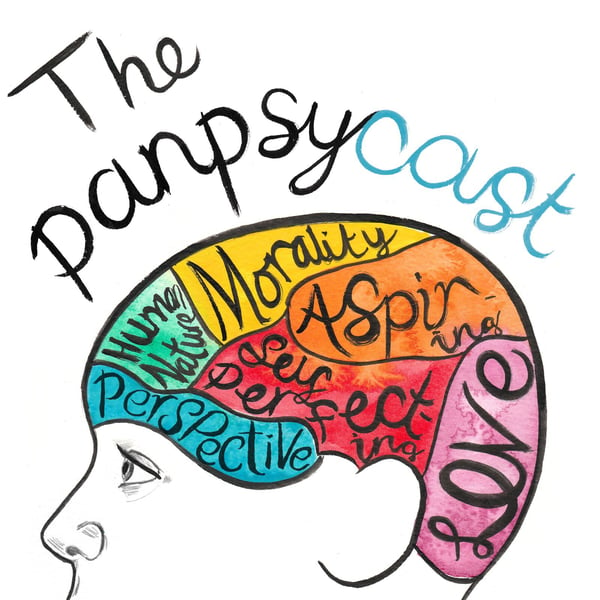Episode 134, The Philosophy of War (Part II - In Pursuit of Power)
The Panpsycast Philosophy Podcast
Jack Symes | Andrew Horton, Oliver Marley, and Rose de Castellane
4.8 • 604 Ratings
🗓️ 8 September 2024
⏱️ 44 minutes
🧾️ Download transcript
Summary
On August 6, 1945, an atomic bomb was dropped on Hiroshima, instantly killing up to 80,000 civilians, with another 40,000 dying soon after from burns and radiation poisoning. The bombings of Hiroshima and Nagasaki led to the surrender of the Japanese Army, marking the end of the most destructive war in history.
War has been a constant throughout history. Since the dawn of agriculture, humans have waged war against one another. Some argue that war is ingrained in human nature, from our ancestors battling over resources and empires seeking expansion, to biblical genocides and acts of human sacrifice—Homo sapiens are seemingly insatiable for conflict. Others, however, believe war is not inevitable and that we have the capacity for humility, justice, and kindness without resorting to armed conflict.
We must remember that explaining war is not the same as justifying it. While pacifism, as exemplified by Jesus and Gandhi, is often seen as noble, is non-violence truly effective against regimes intent on ethnic cleansing? If not, how do we determine when war is justified and what defines proportional force? Can the killing of innocent civilians ever be justified? And, if not, how do they differ from innocent combatants? War, huh, good god, what is it good for?
Links
A.C. Grayling, War: An Enquiry (book)
Richard Overy, Why War? (book)
Jeff Mcmahan, Killing in War (book)
Michael Walzer, Just and Unjust Wars (book)
Transcript
Click on a timestamp to play from that location
| 0:00.0 | Pan, pan, pan, pan, pan, pan, pan, pan, pan, pan, pan, pan, pan, pan, pan, pan, scicast. Yeah, it's funny. No one gets hurt. That's why Lacey tags fun. I think... Sorry, I'm kind of missed the first bit. Lazy tag is fun. Mostly because people don't know. You need like an element of hair to make it for me? Like paintball? Paintball. Yeah, that effect, labels fight a mouth. |
| 0:01.7 | It was true. You need like an element of hair to make it for me. Like paintball? Paintball. |
| 0:21.6 | Yeah. |
| 0:22.6 | Paintball is right. |
| 0:23.6 | By the end, we're like, war's great actually. |
| 0:27.6 | War is the answer. |
| 0:29.6 | What is the answer? Part 2 In Pursuits of Power |
| 0:46.0 | In our previous instalment we were speaking about A.C. Grayling's book, War and Inquiry. |
| 0:53.4 | And Grayling explains in the book his view after a very long history |
| 0:57.7 | lesson that he thinks war emerged with agriculture and that it was a political, economic and |
| 1:05.4 | cultural arrangement that didn't exist in our histories before these things came about. |
| 1:11.8 | To quote from me, he says, |
| 1:12.7 | war seems to be more of a matter of how we choose to arrange ourselves politically |
| 1:16.5 | than it is an outcome of human nature. |
| 1:19.4 | Aggression is a feeling in a person, but it is a choice in a state. |
| 1:24.4 | Now, in this installment, we're going to be thinking about what it is about being a part of a |
| 1:29.4 | state and an international situation that gives rise to states of war. We're going to be thinking |
| 1:35.0 | about borders, resources, security, and people's beliefs, and how beliefs lead to conflict and |
| 1:41.5 | war as well. So in Grayland's book, he mainly references the work of John |
| 1:45.2 | Keegan, and John Keegan suggests that war pretty much starts with agriculture. As soon as you |
| 1:50.0 | have a community of people that are settled in one place, they're normally doing that because there |
| 1:54.4 | is a form of a resource that they need or require to thrive and survive. I think there's a little bit more |
... |
Please login to see the full transcript.
Disclaimer: The podcast and artwork embedded on this page are from Jack Symes | Andrew Horton, Oliver Marley, and Rose de Castellane, and are the property of its owner and not affiliated with or endorsed by Tapesearch.
Generated transcripts are the property of Jack Symes | Andrew Horton, Oliver Marley, and Rose de Castellane and are distributed freely under the Fair Use doctrine. Transcripts generated by Tapesearch are not guaranteed to be accurate.
Copyright © Tapesearch 2025.

